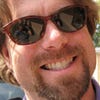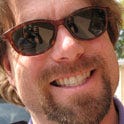Intel Founder Andy Grove (1936-2016)
Andy Grove was one of the founders of Intel, and led the company's efforts to enter the microprocessor market. Thirty years later, the company is still one of the leading sources of CPUs in the world.

Andy Grove, one of the founders of Intel and its CEO during the time it developed into one of the most dominant industrial forces in the world, died on March 21.
Grove's story was an amalgam of the stories of other well-known achievers, in whose company he merits a place. Like Nikola Tesla, he was an émigré from Eastern Europe. Like Thomas Edison and George Westinghouse, and also like his fellow Intel co-founders Bob Noyce and Gordon Moore, he helped usher in a new era of technology; and like Steve Jobs, he would become more notable as a manager than for his personal technical achievements.
Grove was born in Hungary, and he and his family were among the few to make it through the Nazi era. He immigrated to the United States in 1956 during the failed Hungarian Revolution. Once in the US, he set to work earning a bachelor's and then a PhD, both in chemical engineering.
Want to know more about communications ICs? Check out our comms chips channel here on Light Reading.
He was hired by Fairchild Semiconductor, among the first successful semiconductor companies, located in an area that would later become known as Silicon Valley. It was at Fairchild that he met Noyce and Moore, and when those two left to form Intel Corp. (Nasdaq: INTC) in 1968, Grove was the first person they hired at their new company.
Grove became the company's president in 1979, its CEO in 1987, and also its chairman in 1997. Intel had helped create a booming market for memory ICs. Grove took over management duties after those products had already started becoming commodities and as Intel began to try to remake itself as a supplier of central processing units (CPUs), facing some formidable competition from the likes of Motorola, National Semiconductor and Zilog.
Grove helped secure Intel's future success by nailing down a contract to become the key source of microprocessors for IBM, which would come to dominate the early market for personal computers.
IBM adopted the 8088 CPU for its initial PCs, but it was a closely associated product, the 8086, which became the template for the x86 architecture that would essentially define the PC market for more than 30 years. To this day, the latest x86 iterations remain a highly popular choice in PCs, and are thoroughly dominant in data center servers.
During his tenure, Grove became a management guru, with a style that emphasized openness, competitiveness -- even in-house -- and a dedication to innovation. He wrote several books, most of which are on management. For several years he wrote a weekly advice column for managers published in the San Jose Mercury News that was syndicated elsewhere. Even Steve Jobs turned to Grove for management advice, as he built his own reputation as one of Silicon Valley's greatest managers.
Grove retired as Intel chairman in 1998.
— Brian Santo, Senior Editor, Components, T&M, Light Reading
Read more about:
EuropeAbout the Author(s)
You May Also Like












